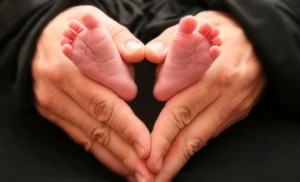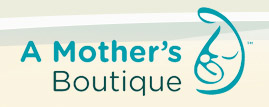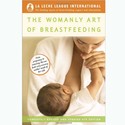This is the third post in our series about postpartum mood disorders. Last week, we heard from Kirsten Pitini about her experiences suffering from postpartum anxiety. We also learned about Postpartum Support International from our western PA regional coordinator Brittany Edge. Today, we hear from Kathy McGrath, a Licensed Social Worker and director of Birth Partners, Inc., an agency that provides pregnancy/labor support services, perinatal education, and counseling. Kathy has been doing birth work for over 20 years and was one of the first 10 doulas ever certified by DONA. In addition to teaching classes and holding new Mom’s groups, she works with mothers who have had a challenging or traumatic birth experience. You can reach her at birthpartnersclasses@gmail.com.
To begin, I asked Kathy to explain some of the symptoms of postpartum anxiety, which research shows is actually as common, if not more common, than postpartum depression. The most common symptom is feeling worried and overwhelmed much of the time, along with being irritable, having physical symptoms like headaches and body aches, having panic or anxiety attacks, sleep issues (especially not able to sleep even when the baby is sleeping), and generally not feeling like herself.
According to Kathy, we’re missing a lot of women suffering from postpartum anxiety because most of the screenings focus on postpartum depression. She says, “Some women have depression, some have anxiety, and some have both. These illnesses are like cousins who want to hang out together.”
Postpartum anxiety is not just feeling stressed–Kathy says all new mothers have some degree of stress. Sometimes it’s hard to identify which mothers have postpartum anxiety because many of the symptoms are similar to normal things that affect mothers in the postpartum period, including sleep deprivation. With postpartum anxiety, the normal stress and worry is magnified and feels all encompassing.
The most common feature of postpartum anxiety is constant worry–is the baby all right? Am I all right? Is the baby eating enough? Sleeping enough? These mothers often feel an ever-present sense of dread, that they must always be on watch. This feeling that something bad is just a heartbeat away from happening gets in the way of enjoying the baby.
Some mothers develop postpartum obsessive compulsive disorder, which can bring with it lots of checking and re-checking on the baby, and sometimes scary thoughts, especially ones that involve harming the baby. These Moms are horrified by the images in their thoughts, but they can’t turn them off. It is extremely unlikely moms with postpartum OCD would act on any of these thoughts, and it distresses them to no end that the images are there.
“The most important thing for people to know is this is an illness and with the proper treatment, it will begin to get better,” she assures us.
Unfortunately, she says the majority of women suffering from these illnesses don’t get treatment. “They eventually start to interfere with relationships. Women aren’t enjoying their babies, and feel sadness that they aren’t experiencing the type of motherhood they imagined.”
And, as we’ve seen, “our society doesn’t allow for sadness after the birth of a baby. Women are supposed to only feel happy and grateful, and so many women who open up about their symptoms feel silenced, which leads to isolation and guilt.”
So what does successful treatment of postpartum anxiety look like?
“I usually recommend starting with self help measures” says Kathy. Exercise (yoga is particularly helpful), positive self- talk, good nutrition, including a diet high in Omega-3’s, and (of course) sleep. “We have to find a way to help new mothers sleep more,” she says. Sleep is not a luxury – its important to our physical, mental and emotional health. During times of extreme anxiety, distracting activities can be helpful. “Go for a walk, dance with the baby, call a friend.”
“Support from other moms is enormously helpful,” she says. Kathy facilitates several “new mothers’ coffees” each week. “There is great benefit in moms supporting moms in nurturing, non-judgmental ways. Sometimes other mom friends can be a sort of barometer—what are other moms struggling with and is my level of worry in the same ballpark?”
“If self-help measures aren’t enough, counseling can be extremely beneficial for moms suffering from postpartum anxiety. It’s important to find a therapist who understands postpartum issues. It’s kind of a specialty. Many professionals in the birth world (OB’s, midwives, doulas, childbirth educators) have good referral lists. They need to find somebody whom she is very comfortable with.”
Medication is one very effective tool for treating postpartum anxiety, but medicine is not the only option and the type and dose of medicine is not one size fits all. “Medication often takes some tweaking to get right,” she says. It takes several weeks for it to reach full effectiveness, and the mom needs to have somebody working with her to make sure the dosage is right. There are other treatment options besides medicines, including talk therapy, light therapy and others.
Some women are at higher risk than others for developing postpartum anxiety. A personal or family history of anxiety or depression, or a difficult pregnancy or birth are common ones.
“Postpartum anxiety is such a tough illness because it comes at a time in our lives when we want to feel our best and enjoy our babies, and the constant worry makes it hard to do that. And it often has a domino effect; if you’re anxious all the time, its hard to enjoy the baby, if you’re not enjoying the baby then you feel guilty, and when you feel guilty, you get irritable… ”
“Most importantly”, she reassures, “mothers with these illnesses are loving, caring moms who are suffering from a –fortunately, very treatable – illness. They can get better, they will get better, and they can once again experience motherhood the way they had hoped.”
In addition to PSI, Kathy recommends the Postpartum Progress website. For those that have had a traumatic birth experience, she recommends Prevention & Treatment of Traumatic Childbirth (PATTCH) as online resources for new mothers and their partners.
Did you suffer from postpartum depression or anxiety? Leave us a comment to share what resources helped you recover.










